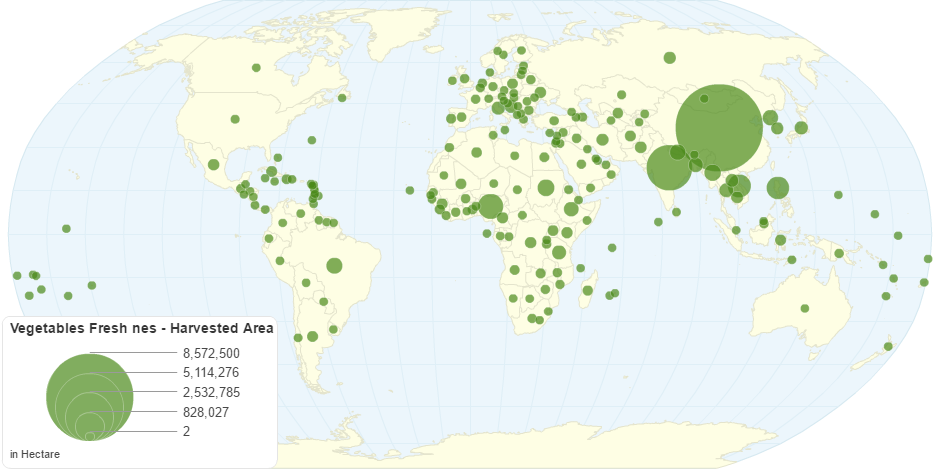This chart shows Vegetables Fresh nes Harvested Area by Country.
Vegetable is any part of a plant that is consumed by humans as food as part of a savory meal. The term vegetable is somewhat arbitrary, and largely defined through culinary and cultural tradition. It normally excludes other food derived from plants such as fruits, nuts, and cereal grains, but includes seeds such as pulses. The original meaning of the word vegetable, still used in biology, was to describe all types of plant, as in the terms "vegetable kingdom" and "vegetable matter".
world, probably during the period 10,000 BC to 7,000 BC, when a new agricultural way of life developed. At first, plants which grew locally would have been cultivated, but as time went on, trade brought exotic crops from elsewhere to add to domestic types. Vegetables can be eaten either raw or cooked and play an important role in human nutrition, being mostly low in fat and carbohydrates, but high in vitamins, minerals and dietary fiber.
Many nutritionists encourage people to consume plenty of fruit and vegetables, five or more portions a day often being recommended. Vegetables play an important role in human nutrition. Most are low in fat and calories but are bulky and filling.They supply dietary fiber and are important sources of essential vitamins, minerals, and trace elements. Particularly important are the antioxidant vitamins A, C, and E.
The nutritional content of vegetables varies considerably; some contain useful amounts of protein though generally they contain little fat,and varying proportions of vitamins such as vitamin A, vitamin K, and vitamin B6; provitamins; dietary minerals; and carbohydrates.
Vegetables contain a great variety of other phytochemicals, some of which have been claimed to have antioxidant, antibacterial, antifungal, antiviral, and anticarcinogenic properties.
9 years ago

